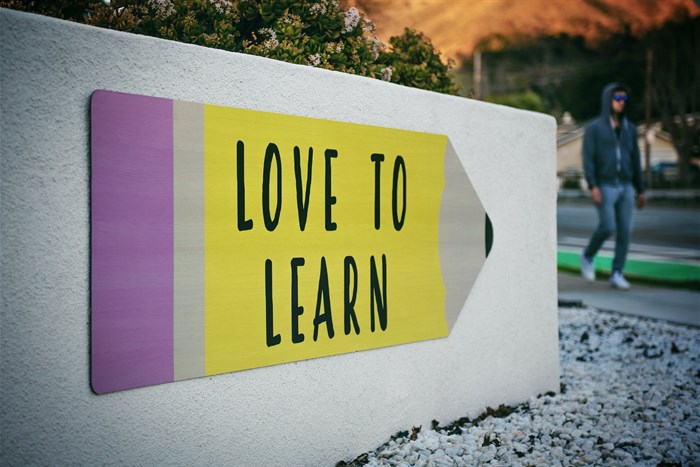
Top stories




Marketing & MediaAds are coming to AI. Does that really have to be such a bad thing?
Ilayaraja Subramanian 6 hours


More news


















Even more interestingly, SA's level of investment in education is on par with the commitments of several affluent countries in the Organisation for Economic Cooperation and Development (OECD) community.
Unequal access to quality education, a shortage of qualified teachers, the absence of a systematic method for assessing teacher performance, and alarmingly high dropout rates continue to persist, casting a shadow over our educational performance. Learning setbacks have been further worsened by the pandemic.
Currently, over 60% of our youth lack meaningful employment, while a scarcity of critical skills stifles economic growth. It's a double whammy. Our education system isn't aligning with the economy's needs, leading to a significant labour supply-demand mismatch—a crisis we can't afford, especially with our top talent being lured away by major economies.
Education is the bedrock upon which any thriving economy is built and is essential for both economic prosperity and social well-being. Without a well-educated and skilled workforce, achieving economic development remains a distant aspiration. A competitive economy drives income growth and overall well-being. We are in a fierce race globally for new markets, investment, skills, and tech, and right now, we are lagging. To thrive on the world stage, we require a fresh growth narrative, with education at its heart.
Take Rwanda, for instance. It has transformed itself from conflict to success by investing in infrastructure and education. Their goal is digital literacy for all by 2035 and becoming a high-income nation by 2050, emphasising a competency-based curriculum focused on creativity and practical skills for the global job market. Kenya too is committed to becoming a newly industrialised nation by 2030 and acknowledges that quality education is vital to achieving this vision.
Kenya has made impressive progress, including a 70% reduction in the cost of textbooks, the equal enrolment of girls and boys at the primary level, the training of 102,000 teachers to enhance maths instruction, leading to improved student competency in the subject. Furthermore, the country now utilises real-time data, which enables the government to monitor indicators transparently and reliably like attendance, enrolment, and staffing.
Finland’s progressive education system prioritises creativity, critical thinking, and problem-solving over rote memorisation. Students work on real-world problems, enhancing skills like teamwork, research, and problem-solving. Sweden for example has become a tech powerhouse to rival Silicon Valley. With an entrepreneurial culture born from a healthy stream of government investment into infrastructure and education. Sweden’s “crown” as an incubator for global market leaders is set to continue.
What's our next step? What can we do to make our education system in SA more effective and efficient, while ensuring that we receive the best possible return on our investment?
The answer lies in reimagining the core of education itself. It's time to leap ahead and fully embrace innovative approaches. Education innovation should be woven throughout the entire education process. This means embracing and adopting smart, fresh methods, harnessing cutting-edge technology, updating curricula, offering essential teacher training, and fundamentally transforming our perception of education.
It's about revolutionising the way we think about learning. Let's roll up our sleeves and get involved in reshaping the education scene. We have the power to lead the charge in redefining how we educate the next generation. For businesses, it's not just a strategic manoeuvre; it's an investment in the young talents who will be the architects of our economic future.
We need strong leadership from both the public and private sectors, involving everyone, including academia. This leadership shouldn't be confined to the government alone. Business and academic leaders should team up, share their visions for the future, and collaborate to achieve common goals. It's about working together and striving for shared objectives. Let's rethink and put our resources into every part of the education process.
We can do this by improving teacher training, matching our curricula with what industries need, making vocational training and apprenticeships stronger, and ensuring that everyone has access to digital resources. By doing all this, we can create an education system that not only meets the needs of the economy but also supports the well-being of our society.
We need to concentrate on developing the skills needed for the future job market.
The World Economic Forum has pinpointed skills crucial for the future:
We also need to adapt to the changing world of work. The work landscape is evolving rapidly, and entrepreneurship is taking centre stage as a catalyst for growth. It's important to note that in the current era, governments and large corporations are no longer the primary sources of job creation, as they were in the past century.
So, adapting to this changing world of work and nurturing entrepreneurial skills is crucial. Across the globe, an increasing number of individuals are finding it necessary to create their own employment opportunities rather than seeking existing jobs.
Over the last decade, most OECD countries have recognised the importance of fostering entrepreneurship skills throughout the education system. Denmark, for instance, actively promotes the integration of innovation and entrepreneurship into the core curriculum, along with expanding hands-on teaching practices in schools and introducing innovation courses in teacher training programmes.
Other countries such as Finland, Portugal, and Sweden have taken steps to incorporate entrepreneurship education into the primary and secondary school curricula. Meanwhile, Australia and Ireland are encouraging the integration of information and communication technologies into the educational landscape.
To sum it up, our competitors are seizing opportunities, and we must too. We must step up our game, as the world won't wait for us. This is especially crucial if we aim to pave a brighter future for our youth.
As Nobel laureate Paul Romer wisely pointed out: “If you can’t solve the problem of getting the majority of young people into work, it may not matter what other problems you solve.” This statement resonates powerfully in today's context.